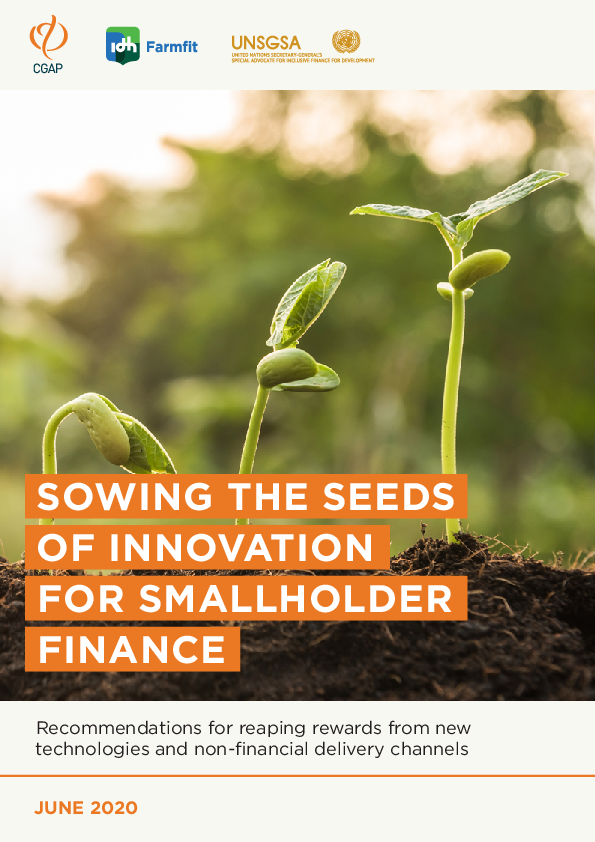Sowing the Seeds of Innovation for Small Holder Finance

As the global population grows, farmers must supply a greater variety of food products to an expanding middle class, while confronting the challenges of climate change and working to secure their own livelihoods. Evidence shows that smallholder farmers and small- and medium-sized agribusinesses (agri- SMEs) in the developing world—who provide the majority of the world’s food supply—do not have access to adequate financial services that could help them expand their enterprises and support their families. In addition to agricultural credit, farmers need access to savings, insurance, remittances, and payments, in order to manage everyday expenses, pay bills, send their children to school, and save for the future.
This study describes how these nascent collaborative business models are evolving rapidly, as providers learn by doing. However, we can now recognize some of the opportunities and risks these models present. From this analysis, we propose general insights on how to promote successful cross-industry partnerships and highlight specific steps that privateand public-sector actors can follow to continue expanding access to rural and agricultural finance in a way that is viable for providers and customers.
This action report, is produced by IDH, CGAP and the Office of the UN Secretary-General’s Special Advocate for Inclusive Finance for Development (UNSGSA), H.M. Queen Máxima of the Netherlands, with input from the UNSGSA’s Agriculture Finance Working Group.
A relevant webinar series, hosted by IDH, The Sustainable Trade Initiative, businesses and policymakers shared insights and recommendations on how they’ve managed to build partnerships and pilot digital technology solutions that boost bottom lines while helping smallholder farmers access information, inputs, and affordable financing.
Webinar Series: Inspiring Partnerships for Digital Innovations in Smallholder Finance
Webinar recordings: Innovations for smallholder finance - Business Insights
Webinar recordings: Innovations for smallholder finance - Policy Recommendations
